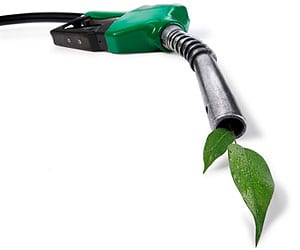Traditionally used to grill a great steak or heat your home, propane hasn’t historically been as popular a fuel as gasoline or diesel for automobiles in the United States. Until now.
 Not exactly “environmentally friendly” – propane still produces toxic nitrous oxide, carbon monoxide, hydrocarbons and plenty of particulate emissions when burned in an internal combustion engine – but not nearly as damaging as gasoline, propane is cheaper and cleaner burning that traditional fuels. In fact, President Barack Obama recently ordered all vehicles in the federal fleet to run entirely on alternative fuels by 2015.
Not exactly “environmentally friendly” – propane still produces toxic nitrous oxide, carbon monoxide, hydrocarbons and plenty of particulate emissions when burned in an internal combustion engine – but not nearly as damaging as gasoline, propane is cheaper and cleaner burning that traditional fuels. In fact, President Barack Obama recently ordered all vehicles in the federal fleet to run entirely on alternative fuels by 2015.
Indiana is already catching on and providing a model after which other states can follow. According to propane.pro, the Hoosier State plans to convert more than 600 state vehicles, saving its taxpayers $1 million annually and doing a big favor for the environment.
One Seattle airport shuttle fleet has already made the switch, filling the tanks of its 200 buses, vans, limos and coaches with clean-burning propane in an effort to become more environmentally responsible. Shuttle Express operates a network that is in the process of converting to propane gas.
“We’re quickly moving toward a 100% propane-powered van fleet,” said the president of Shuttle Express, John Rowley. “We are committed to being the best transportation choice, and part of that means being the environment-friendly option for our guests.”
If the State of Indiana and Shuttle Express are any indication of where fleets are heading when it comes to alternative fuels, field service and fleet managers who haven’t already taken notice would do themselves, their customers and the environment a great service to follow in their footsteps. Propane is cheaper, cleaner and becoming more readily available as service stations pop up across the country.

Share this: